
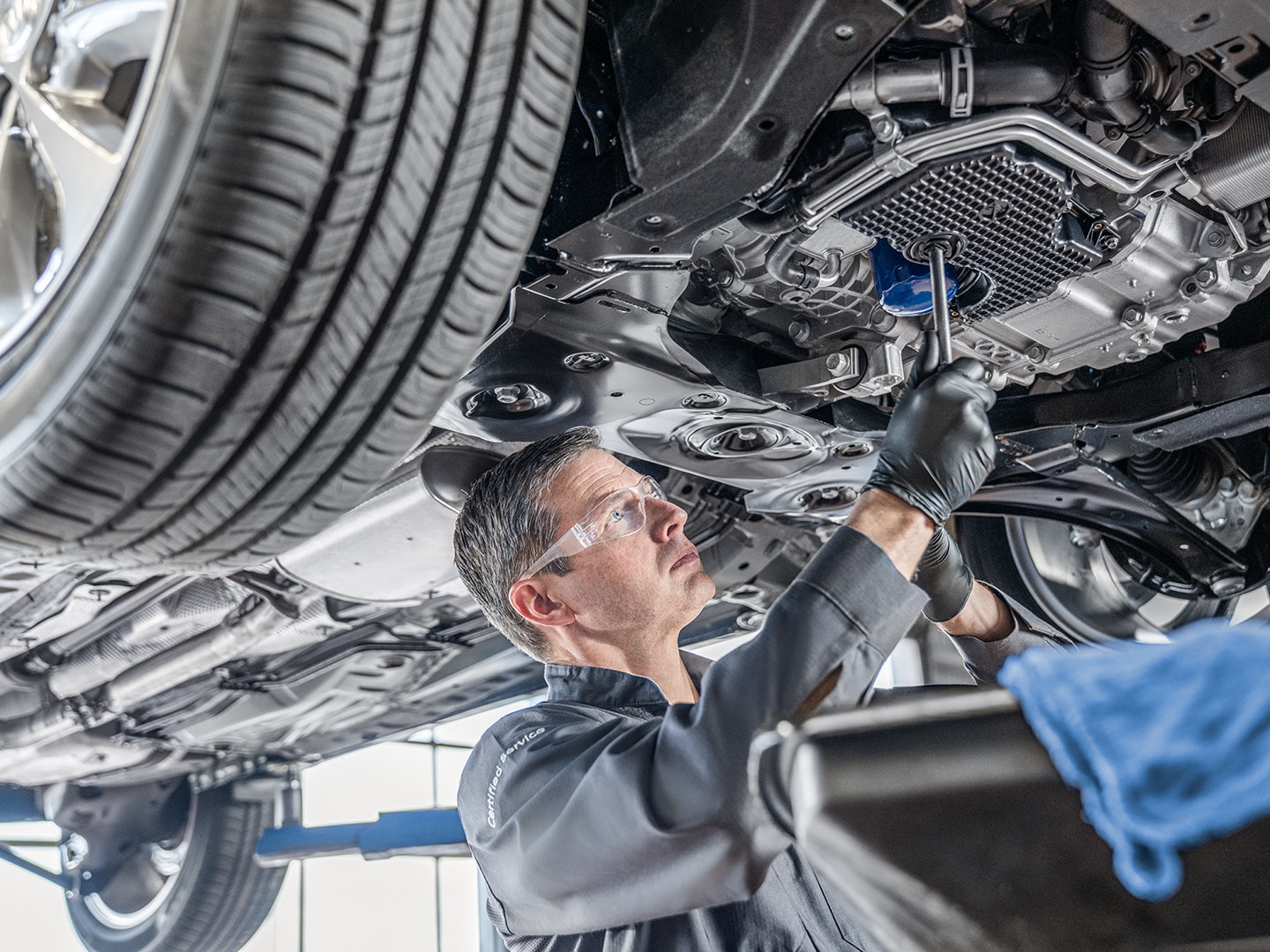
GET AN OIL CHANGE NEAR Victorville, CA
Driving around with dirty or low oil can shorten the life of your engine considerably. To help keep your vehicle on the road, our Certified Service experts at Victorville Chevrolet undergo extensive training to best understand your CADILLAC, Chevrolet's engine and oil needs.
Regular oil changes from Victorville Chevrolet help ensure your CADILLAC, Chevrolet vehicle has everything it needs to perform its best and keep you on the road.
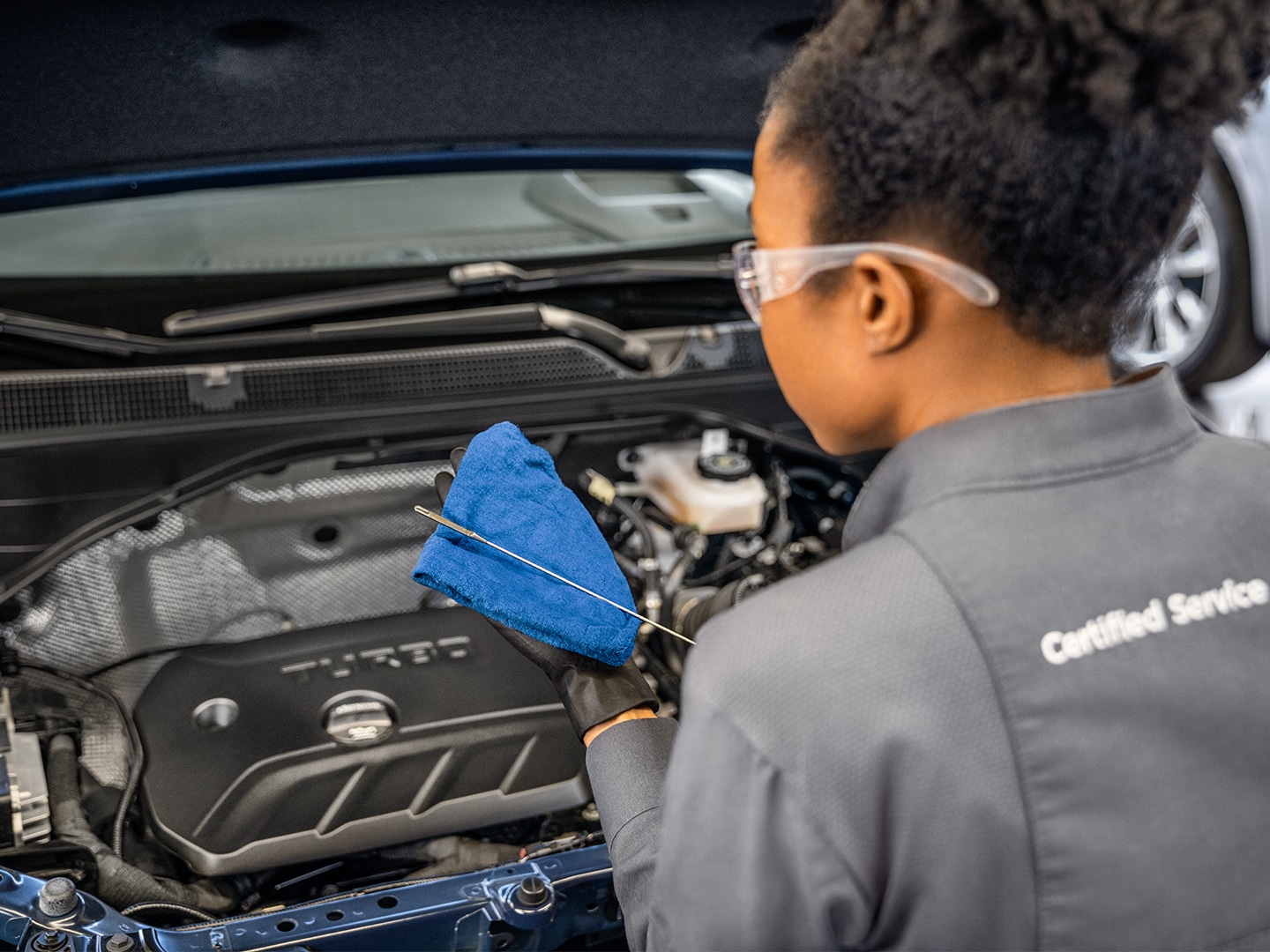
CHECKING YOUR OIL LEVEL
Our Certified Service technicians have all your vehicle's oil needs covered, helping ensure:
- Oil circulates at a normal operating temperature
- Oil is not leaking or burning in the engine
- Your engine has proper oil filtration and oil levels
Leave it to the experts to assist you with all your oil change needs when you come in for service.
CHOOSING THE RIGHT OIL
Choosing the proper grade of oil is crucial to your vehicle's performance. Our Certified Service experts can tell you which grade of oil you should use for your specific CADILLAC, Chevrolet model.
From conventional to full synthetic, the experts at Victorville Chevrolet offer a range of oil types:
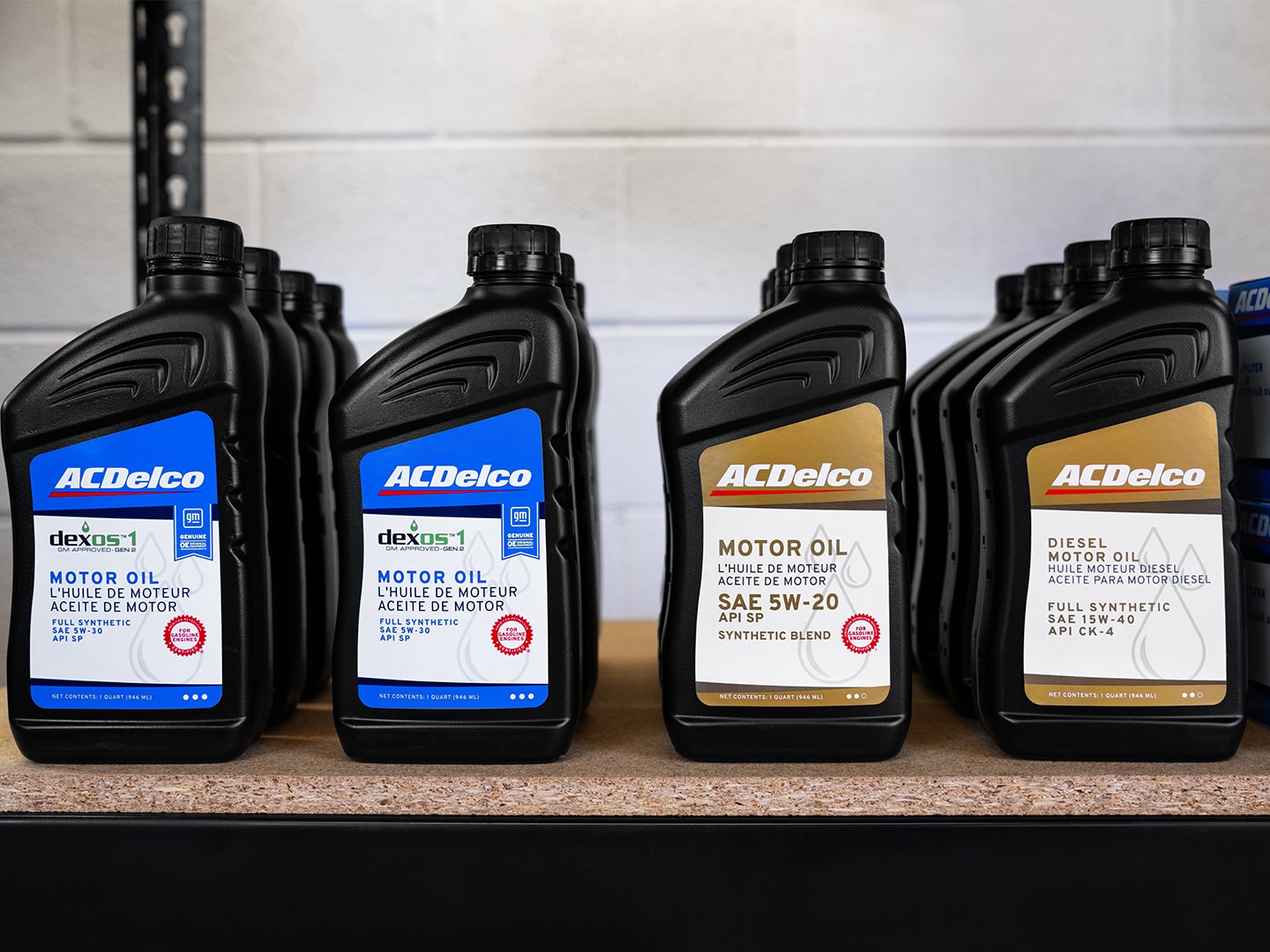
ACDELCO GOLD CONVENTIONAL ENGINE OIL
Helps protect your engine against high-temperature deposits to reduce engine wear.
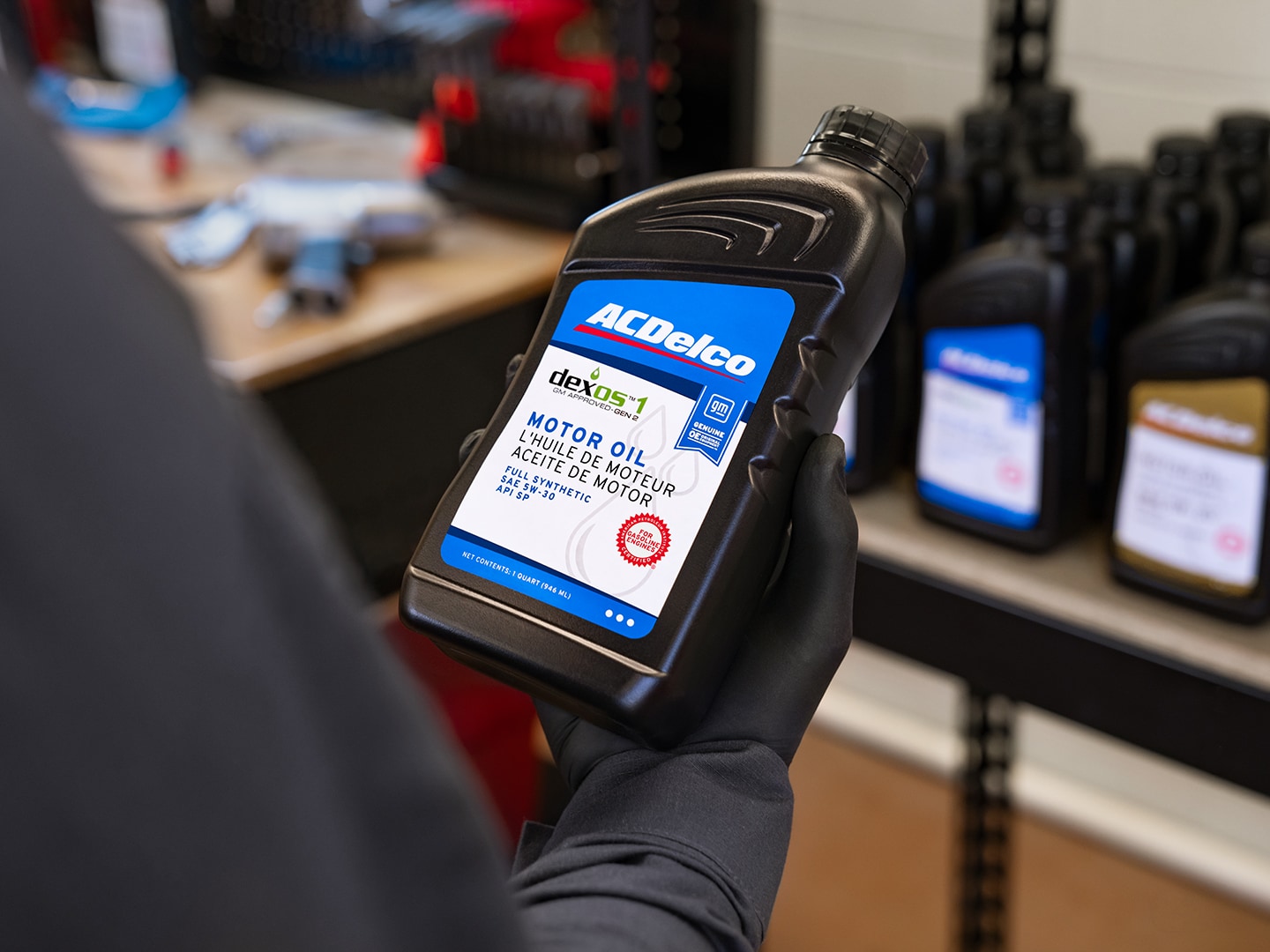
ACDELCO GM OE DEXOS™1 FULL SYNTHETIC ENGINE OIL
Helps keep engines cleaner by resisting varnish and sludge that can affect performance.
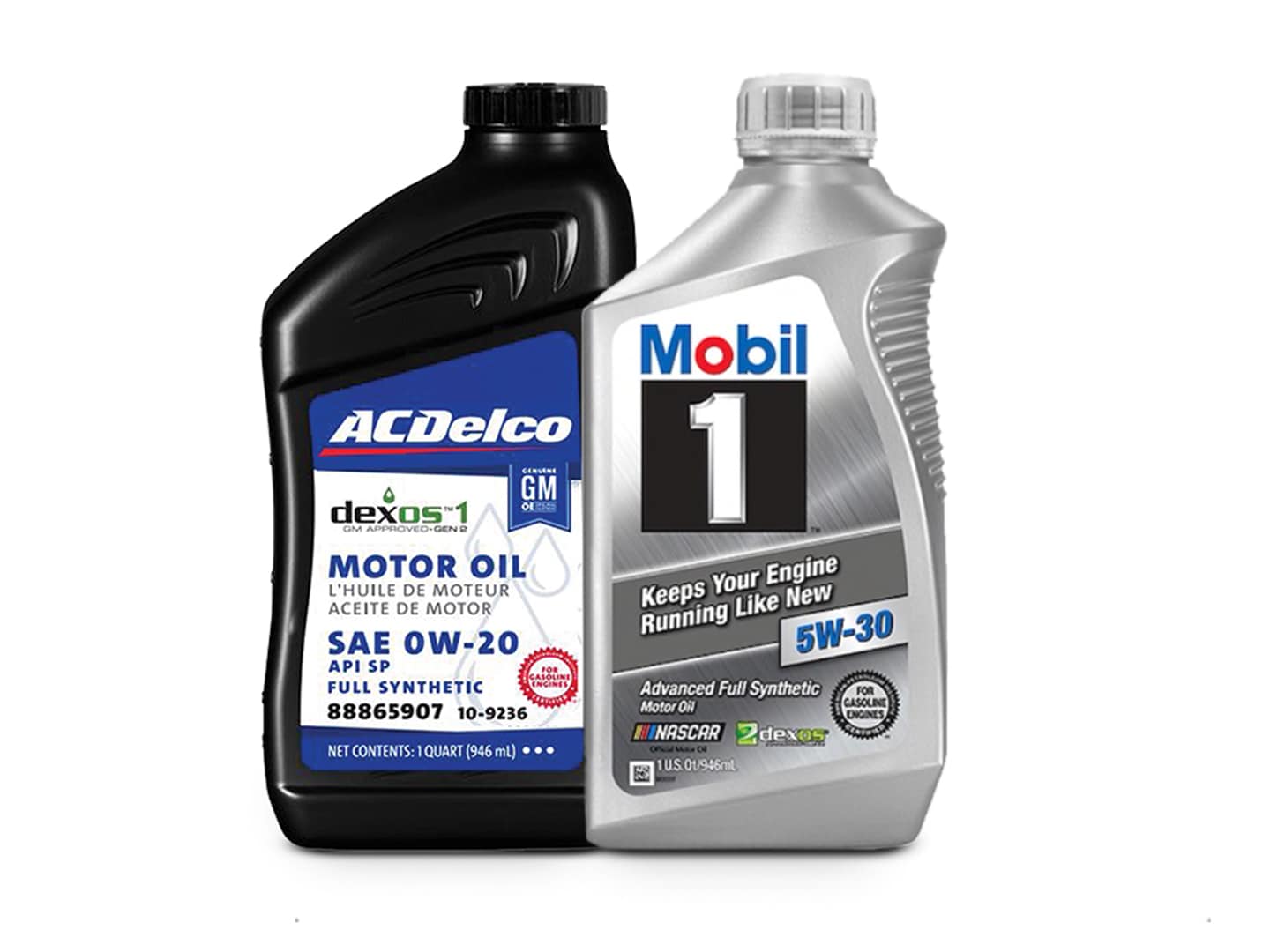
MOBIL 1™ FULL SYNTHETIC ENGINE OIL
Advanced anti-wear technology for outstanding protection of critical engine parts.
OIL FAQs
You can check your Owner’s Manual for the correct grade. Or the Certified Service experts at our dealership can help ensure you get the proper oil for your vehicle during your scheduled service visit.
The majority of today’s new vehicles are equipped with the engine Oil Life System (OLS), which has made the 3,000-mile oil change obsolete in most cases. Depending on the age of the vehicle, driving habits and road conditions, vehicles with today’s advanced engines can go longer between oil changes. Always be sure to check your engine oil level regularly, even with an engine OLS.
Yes, it can. It helps ensure your engine is lubricated with clean oil, which can help provide optimal engine performance. See your vehicle’s Owner’s Manual for the recommended oil change interval, or follow the engine Oil Life System, if equipped.
What do our experts look for during your Multi-Point Vehicle Inspection*?
- Remaining Engine Oil Life
- For vehicles with the GM Oil Life System, a technician inspects your remaining oil life percentage and determines if your vehicle needs a change.
- Tire Wear
- The Certified Service experts assess your tires for proper alignment, balance, and condition to help ensure the optimum performance and safety of your vehicle.
- Wiper Blades & Glass Condition
- A visual inspection of your windshield is completed to check for cracks or chips in addition to checking the operation and condition of your front and rear wipers.
- Fluid Levels
- An expert will check the fluid levels in your vehicle's brake reservoir, windshield washer and others to help ensure smooth operation.
- Brakes
- An inspection is performed on the condition of your brake system, including lines, hoses, and the parking brake, in addition to measuring the front and rear linings.
- Battery Condition & Connections
- A quick test and visual inspection will determine the health and power levels of your vehicle's battery.
- OnStar** Subscription
- A brief assessment will ensure you are connected to your OnStar system subscription if relevant.
- Additional Vehicle Inspections
- An additional vehicle inspection of critical systems and components is performed to check for visible leaks or damage.
*See dealer for complete details. Multi-Point Vehicle Inspections vary by participating dealer.
** Visit onstar.com for details and limitations. Services vary by model. Service plan required.